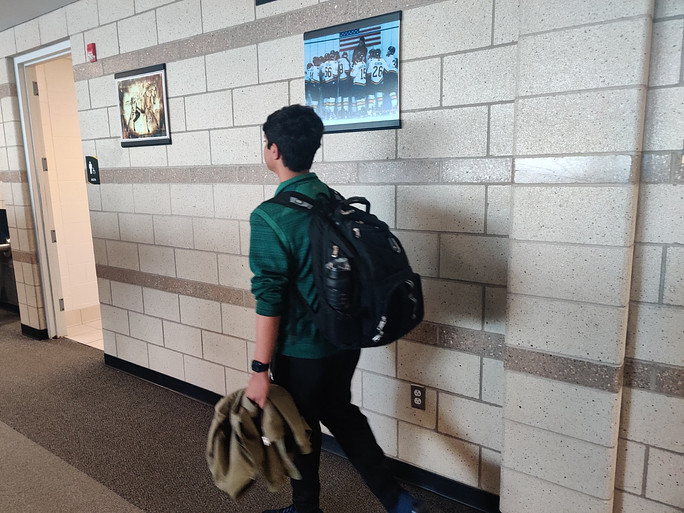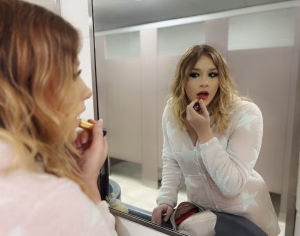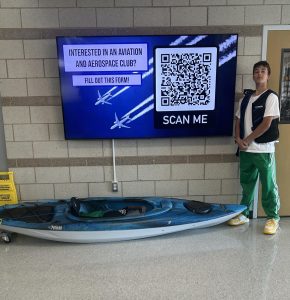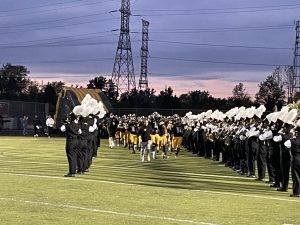Administrators encourage students to use bathrooms responsibly
Venkata Sri Saiveer Chelliboyina
While the school bathroom situation is messy, there are efforts being made to improve the conditions.
April 21, 2023
Vandalism, vaping, substance use, graffiti and garbage are among the most common incidents in school bathrooms. Mischievous students even worked around vape detectors installed in some schools. Trash being found in the sinks and urinals is an everyday occurrence at Metea. The school bathrooms seem to be bombarded with issues like these, and solving them completely seems impossible.
But why?
A TikTok trend known as the “devious lick” spread among teenagers last year. This sensation involved vandalizing and stealing school property, namely bathroom equipment. Seeking attention – a big part of teenage psychology – can be attributed to misbehavior in the bathrooms.
“They want a reaction,” Assistant Principal Daniel DeBruycker said.
He also mentioned that most students fall to horseplay in school bathrooms because they are trying to be comical.
“This attention-seeking behavior commonly correlates with making poor choices. When questioning students who admitted to vandalizing or stealing bathroom property, the single most consistent response was ‘I thought it was funny,’” DeBruycker said.
Last year the school saw temporary fixes to these problems, including locking certain bathrooms throughout the day.
“During the day we only have two custodians in the cafeteria area and they are also the same people who will be called in to clean the restrooms,” facility manager Gerardo Nunez said.
Problematic bathrooms could not be properly supervised with inadequate staffing, and oftentimes the issue was not just the lack of cleanliness.
“Unclogging toilets require a lot more work than sweeping or mopping,” Nunez said.
This year, however, some changes were implemented, including a supervisor being positioned outside the bathrooms, as well as reducing hallway and bathroom traffic during the first and last ten minutes of class with the ten-minute freezes.
“We have a dean assistant at the front of the door all the time [now],” Nunez said.
This allows for periodic supervision of the bathrooms and has reduced the horseplay from last year.
The new ten-minute freezes at the start and end of class were less positively received by students. However, they seem to have helped improve the bathroom experience significantly.
“The ten-minute freezes got students to class on time and the number of students that we had to question for wandering the hallways or skipping class has dropped drastically,” DeBruycker said.
The root of the problems will likely persist. Students misbehave in school bathrooms because they are private spaces. Employing a camera to monitor students or chaperoning them in and out of bathrooms is not very feasible, nor is it practical.
“[They] feel safe in a bathroom to go there and make poor choices because there are no cameras. There is an expectation of privacy in those spaces,” DeBruycker said.
The private nature of school bathrooms eliminates the possibility of complete supervision. Using the urinals and facilities is not a privilege that can simply be taken away as a consequence of making poor decisions. Yet, teenagers shoulder increasing responsibilities, and administrators can only work to prevent them from going down the wrong paths.
“Data shows a lot of great things from last year to this year,and we want to continue that [trend],” DeBruycker said.
He also addressed students who may be pressured into making poor choices in bathrooms, especially as teenagers in high school.
“I would tell them to be very careful of using their cell phone in a private space with other adults and young adults,” DeBruycker said.
While he assured that next year’s plans are relatively uncertain as of right now, he did provide a preview of what changes he would like to implement as the school’s new principal.
“One of the things I want to do next year is improve the signage and expectation of what should and should not be happening in the bathroom,” DeBruycker said. “That will be a priority of ours for sure.”








